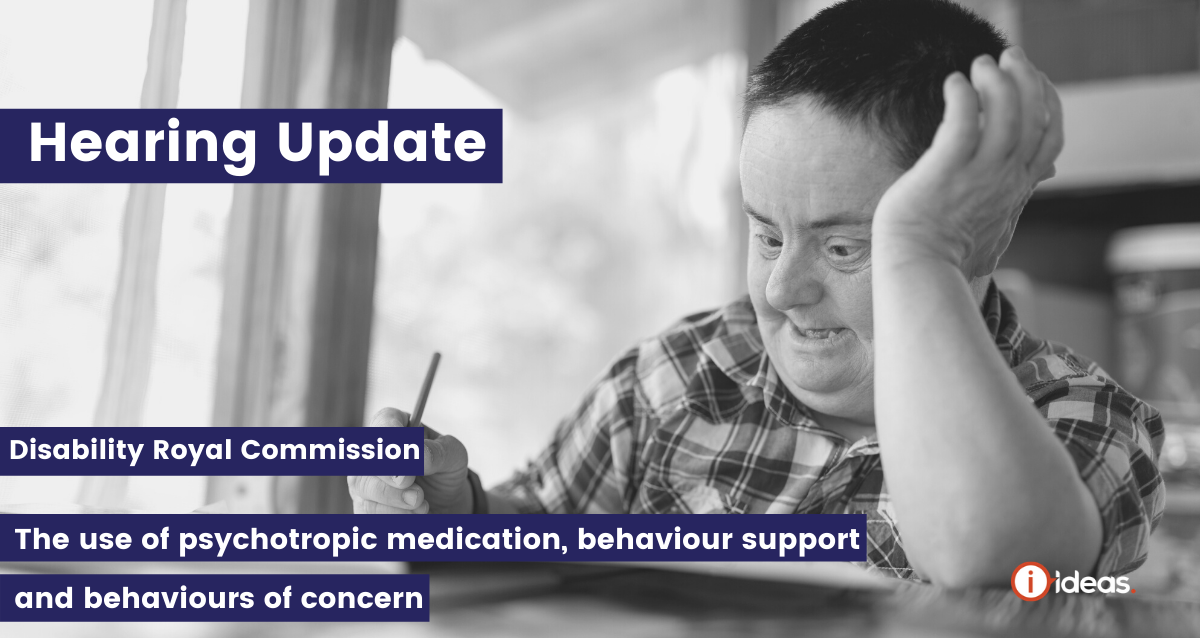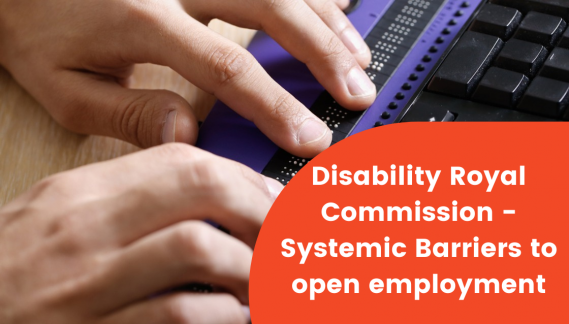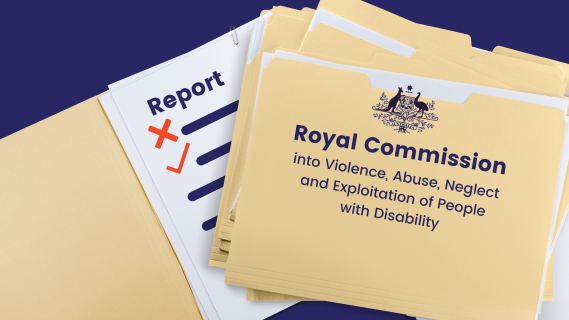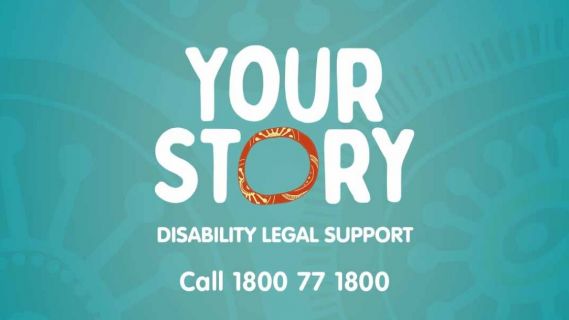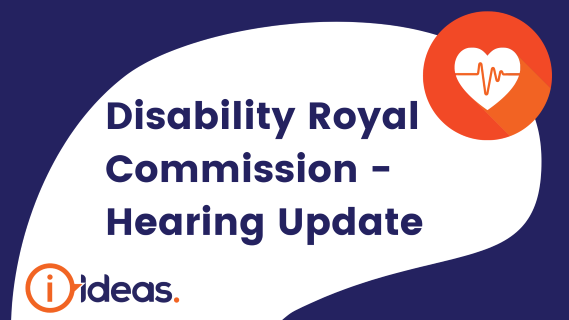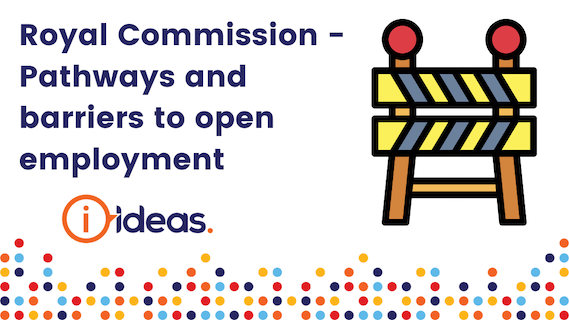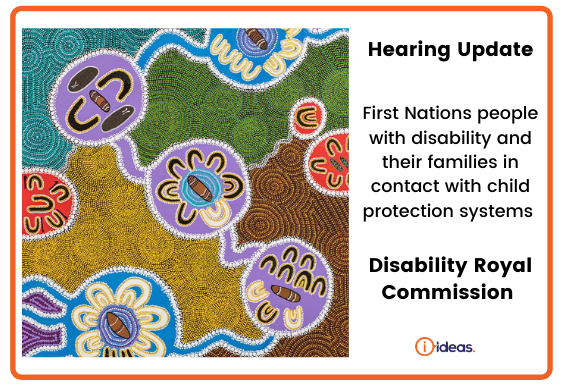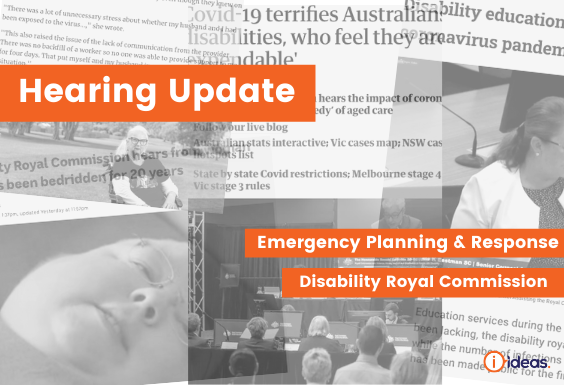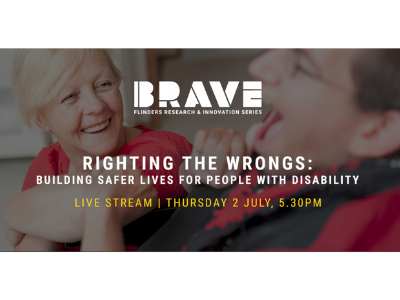The Disability Royal Commission examines psychotropic medication, behaviour support and behaviours of concern as it holds a public hearing this week.
The Disability Royal Commission into Violence, Abuse, Neglect and Exploitation of People with Disability (Disability Royal Commission) has shared - Psychotropic medication is an umbrella term used to refer to any drug capable of affecting the mind, emotions or behaviour, including anti-psychotics, anti-depressants and mood stabilisers. When a person with a disability engages in behaviours that put themselves and/or others at risk of harm, this is referred to as ‘behaviours of concern’.
The extent of reliance on such medication and its effects on the health and wellbeing of people with disability is likely to come under scrutiny at the Royal Commission’s sixth public hearing.
On this page, IDEAS will bring together media coverage, official transcripts and submissions on this weeks hearing. We will continue to update this page as the hearing progresses, so please check back for more information.
Content Warning
Some of the stories and information below contain details about abuse, neglect and mistreatment of people with disability. There is support if you have any concerns because of this information.
Follow the Hearing
- follow DRC_AU and #DisabilityRC on Twitter.
- watch or listen to the live stream or replay the recording.
About the Disability Royal Commission
The Disability Royal Commission was established in April 2019 in response to community concern about widespread reports of violence against, and the neglect, abuse and exploitation of, people with disability. This hearing is one of many that looks at a range of issues that impact the lives of people with a disability. Find out more about the Royal Commission here, including how it works, when it reports, other issues it is investigating and how to take part.
Witnesses
Giving evidence at this hearing is a range of people with a disability, family members, NDIS representatives, health professionals, researchers and public servants. It includes:
- Courtney Wolf NDIS Appeals Advocate Queensland Advocacy Incorporated
- Professor Julian Trollor 3DN UNSW
- Paula McGowan
- Dr Jane Law NSW Developmental Disability Health Unit
- Professor Keith McVilly Professor of Disability & Inclusion, University of Melbourne
- Donna Lockyer Queensland Department Communities, Disability Services and Seniors
- Graeme Head National Disability Insurance Scheme Quality and Safeguards Commissioner
See the full here Witness List
Official Transcripts
The Address included these points:
Psychotropic drugs are overused in Australia as a response to behaviours of concern by people with intellectual disability. For the most part, this form of behavioural control is administered without the person having a meaningful say in what is to happen.
Positive behaviour support is an effective tool for responding to behaviours of concern and should be more widely used as a means of reducing reliance on chemical restraints provided that the support is of the requisite quality.
The overuse or misuse of psychotropic drugs as a form of behavioural control raises significant issues concerning Australia’s compliance with the CRPD.
Opening Address Senior Counsel Assisting - Public hearing 6, Sydney - 22 September 2020
The Address included these points:
Understanding how behaviour is a form of communication will be examined in this public hearing. Communication is critical to choice. All treatment by health services must be based on the principle of ‘free and informed consent’’.
Controlling a person’s behaviour by using psychotropic medication may impair or silence a person’s only means of communication. They become invisible. As Dr Edwards will tell you they are ‘voiceless and without agency’
SC Eastman went on to list the key issues that will be covered in the hearing:
Human rights, absence of nationally consistent laws and regulation of the use of psychotropic medication for people with intellectual disability or autism, behaviour support plans and the regulation of behaviour support specialists, supporting people to manage conflicts, models of care, the role of advocates, safeguards, data, funding and research in Australia and other issues.
Staff often complained to me that Glen wanted too much attention, and it was later written in his behaviour support plan that he liked annoying them. But he just wanted to talk to them. He didn't speak to the other residents much, and he felt that he had better conversations with the staff. From my experience, he never needed much time to talk, but if you didn't give him that two minutes to talk about his day, he would keep trying to interrupt you to say what he wanted to say.
I cannot now recall the total number of people I saw who were subject to chemical restraint or the number of behaviour support plans that I prepared, wrote or reviewed which included chemical restraint while I was at the Department, but I recall that it was common to see chemical restraint in most behaviour support plans.
Transcript Day 3 - Public hearing 6, Sydney
More will be added as they are released.
Media
Hayden McLean kept in 'large caged area' in 'absolutely horrific' group home experience, disability royal commission hears
ABC NEWS September 25
He was not given an opportunity to choose where he lived or who he lived with," Mrs McLean said.
"We were advised that to help him adjust … [we should not] have contact for a month."
Mr McLean's reaction was to destroy his bedroom and regularly escape.
Sister tells Disability Royal Commission her brother looked ‘like a zombie’
Hearld Sun September 23
Ms Atherton said she thought placing her brother in supported accommodation meant he would be provided with the quality of care he needed.
“My view is that while there are some staff that do perform to the expected standards, sadly they are in the minority,” she said.
“In my experience, the organisation that provided my brother supported accommodation let us down.”
Glen Hardwick 'looked like a zombie' when he walked into a family gathering, disability royal commission hears
ABC NEWS September 23
Mrs Atherton told the hearing Mr Hardwick loved window shopping and joking around with people, but it was clear all was not well with her brother when he arrived at a Christmas gathering in 2017 and "looked like a zombie".
It was at that point Mrs Atherton realised her brother's medication now included more than the Ritalin he had always taken for his attention deficit hyperactivity disorder.
"There was no facial expression, he was dribbling and he wasn't interacting with the dogs, which he normally loved, " she said.
"He just looked like an old man and everyone actually commented that day, 'What's wrong with Glen?'"
Oliver McGowan: Mum’s medication warning to Disability Royal Commission
News.com.au September 22
“It is crucial to know how many deaths there are each year and how many of the people with learning disabilities who have died prematurely were taking psychotropic medications,” she said in her statement.
“Such reviews could examine whether people with learning disabilities are dying preventable deaths.”
Senior counsel assisting the hearing Kate Eastman said research suggested up to 60 per cent of people with intellectual disability were prescribed psychotropic medication to manage challenging behaviours, and only 30 per cent of them had a mental illness.
Overmedication of intellectually disabled people costing lives, inquiry told
The Guardian September 22
“Australia must address why so many people with an intellectual disability are medicated,” she said. “We need to ask whether alternative non-pharmaceutical methods have been trialled first.” - Paula McGowan
Counsel assisting the commission, Kate Eastman, said it would hear that there had been international concern about the over-prescription of psychotropic drugs for at least 30 years.
Disability Royal Commission hears teenager was left with a severe disability after being given psychotropic medication
ABC News September 22
"It's not fair that professionals, clinicians, are not given the education and skills required to help them and enable patients with intellectual disability and autism to have better healthcare outcomes," Ms McGowan said.
The commission heard there were 177,000 reports of unauthorised use of chemical restraints on NDIS participants in 2019-2020.
Royal commission lauds Ruth Bader Ginsberg - Bendigo Advertiser September 22
The Disability Royal Commission has paid tribute to deceased US Supreme Court Justice Ruth Bader Ginsburg, describing her as a champion of people with a disability.
Commissioner Sackville:
"Tzedek, tzedek tirdof - Justice, Justice, you shall pursue," he said.
"This also describes what this royal commission is attempting to do."
Disability Royal Commission resumes - ABC Radio AM September 22
Indigo Daya - I think the system is the one that has behaviours of concern. This is not a compassionate or helpful way to respond to people in distress.
Professor Julian Trollor - Some of the main concerns related to psychotropic medicine-use in people with disability include the very high rates of psychotropic medicine-use and the lack of adequate monitoring of the safety and necessity of the psychotropic medications over time.
Royal Commission hearing into use of psychotropic medications and behaviours of concern - Mirage News September 18
One witness will tell the Royal Commission, “Adults with intellectual disability have long been one of the most medicated groups in society with psychotropic drugs commonly prescribed. Psychotropic medications are frequently used to manage challenging behaviour, raising concerns that their prescription is not linked to the diagnosis of mental illness”
Submissions and Evidence
Will be added as they are published.
Live stream
Closed captions and Auslan translations provided as well as an audio-only stream
Support
The Disability Royal Commission has set up support services for people with disability affected by or interacting with the Commission process. These supports include counselling, advocacy, financial and legal help. For more information and links read our resource on Royal Commission Support Services.
More Information
About the Royal Commission
To see more about how the Disability Royal Commission works, other issues it is focusing on and how to have your say see Royal Commission seeks comment for Issue Papers
Other Hearings
- Hearing Update - Disability Royal Commission Emergency Planning
- Royal Commission looks into health for people with intellectual disability
- Second hearing - Royal Commission investigates violence/abuse in group homes
- First hearing of the Royal Commission focuses on education
IDEAS does information so you can do life!

